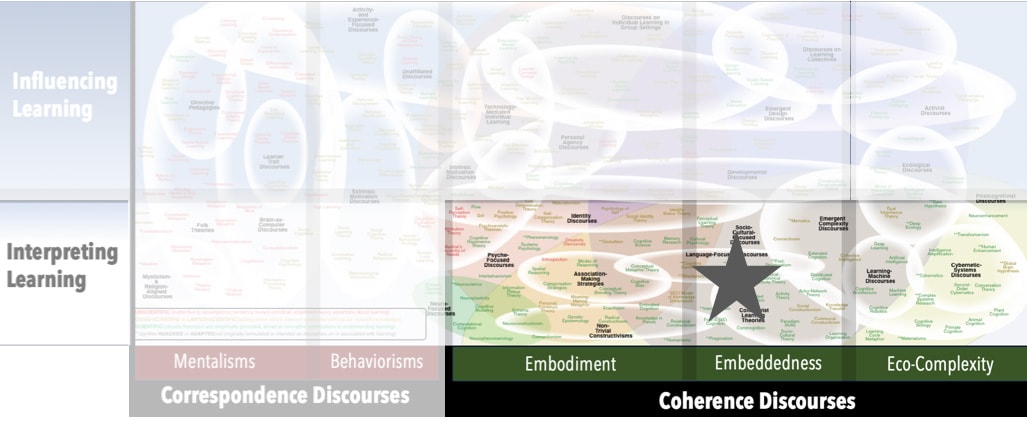AKA
Postcognitivism
Focus
Interpreting learning in terms of co-evolutionary dynamicsPrincipal Metaphors
- Knowledge is … vibrant, viable complex forms/systems
- Knowing is … surviving
- Learner is … a vibrant, adaptive phenomenon
- Learning is … evolving
- Teaching is … occasioning, triggering
Originated
1960sSynopsis
Postcognitivist Discourses are ones that reject those movements that frame cognition in terms of symbolic manipulation and information processing, such as Cognitivism, Information Processing Theory, and other Brain-as-Computer Discourses. Postcognitivist Discourses include a wide range of perspectives and foci, but they are united in at least two important principles. Firstly, they invoke evolutionary dynamics to describe and explain learning. (Importantly, among earlier Postcognitivist Discourses, evolutionary processes tended to be invoked as metaphors or analogies. More recently, the trend has been toward open assertions that learning is, literally, an evolutionary process.) Secondly, all are compatible with Complex Systems Research, even those discourses that predate this research by decades. Associated discourses include:- Postcognitivist Psychology (1990s) – a broad category that is applied to theories within and branches of Psychology that share a rejection of Cognitivism and other Brain-as-Computer Discourses
Commentary
Most criticisms of Postcognitivist Discourses come from outside of scientific domains, and typically boil down to either a rejection of evolutionary theory or a lack of understanding of complexity science. Because both are rooted in a lack of scientific knowledge, neither is worth explicating in detail here.Subdiscourses:
- Postcognitivist Psychology
Map Location

Please cite this article as:
Davis, B., & Francis, K. (2024). “Postcognitivist Discourses” in Discourses on Learning in Education. https://learningdiscourses.com.
⇦ Back to Map
⇦ Back to List
